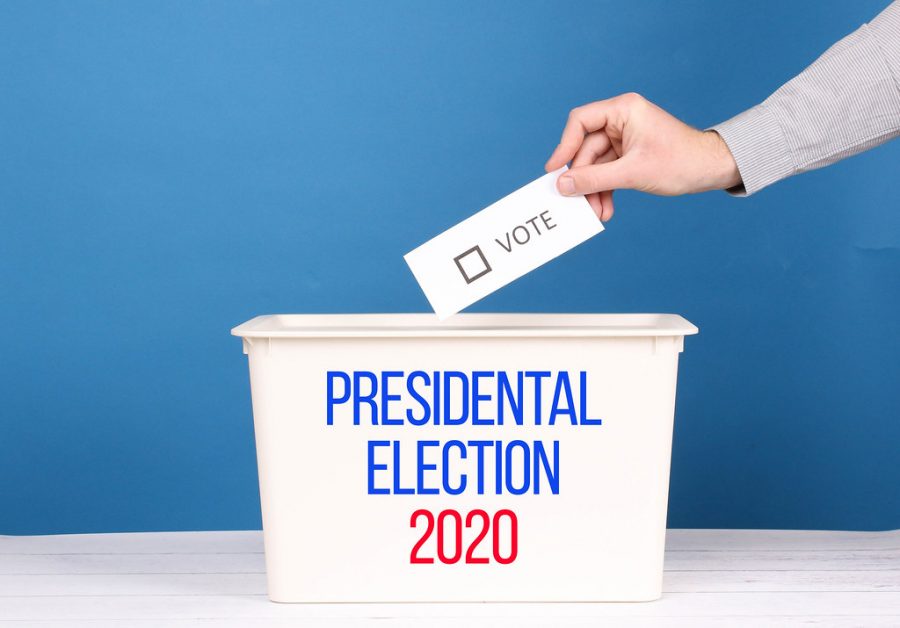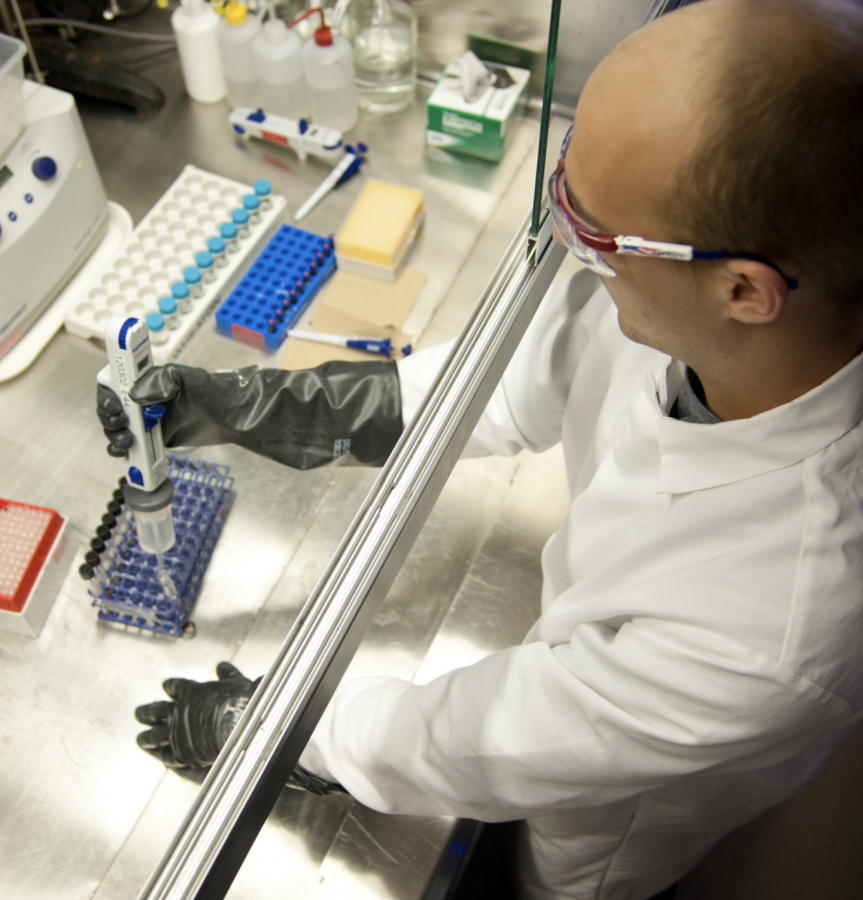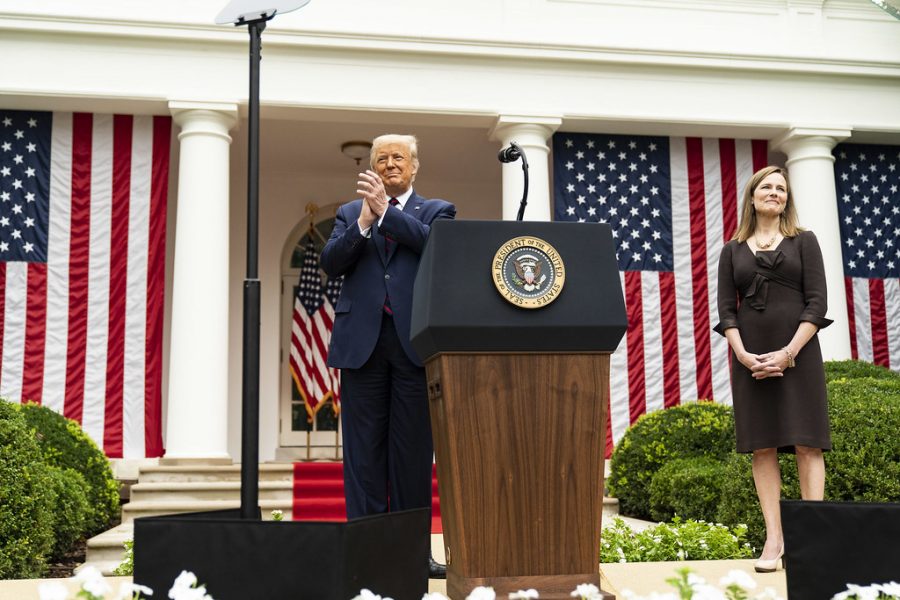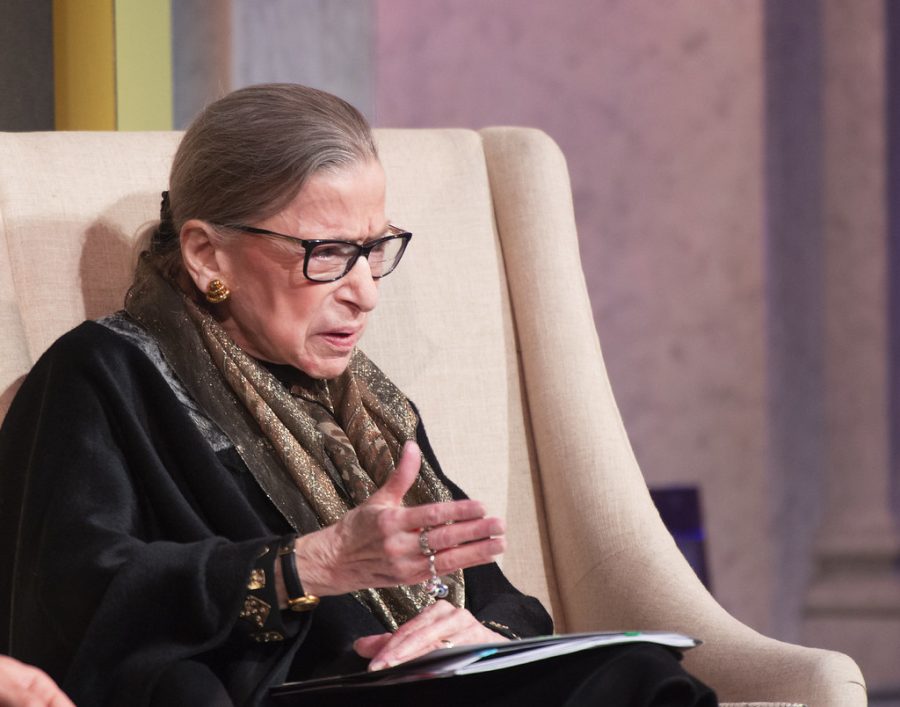Alleged femme fatale Amanda Knox is the key to a controversy that has sparked the interest of a global community. First guilty, then not, and now guilty again: the sorrows of “Foxy Knoxy.”
Knox is at home in Seattle, WA, since 2011 having been found not guilty for murdering Meredith Kercher in 2009, after being found guilty before, in addition of having spent four years in Italian jail. Prosecutors have appealed the verdict resulting in a sentence of 28 and a half years in prison. If it is upheld, Italy could have Knox extradited from the U.S.
In order to shed light on the recent activity, two professors at the University of New Haven have been asked questions regarding the case. Dr. Tracy Tamborra, assistant professor working in the Criminal Justice department for nine years, holds a Ph.D. and uses her knowledge that is specialized in violence against women, race and class in the legal system as teaching material. Additionally she has written a manuscript titled, “Cultural Offenses and Italian Criminal Law: A Complicated Relationship.” She was a former apprentice of Dr. Joshua Sandman’s who taught her political science classes, while she attended UNH. Dr. Sandman has been a professor of political science and pre-law advisor at UNH for more than 40 years.
1. Which legal system is fairer (Italy or U.S.)? Would Knox’s legal process have been different in the U.S.?
Tracy Tamborra: Yes it is, and no it isn’t; both criminal justice systems have some really good safe cards to protect the rights of the accused. However those who have power often abuse the systems. In the U.S. prosecutors abuse power, and in Italy judges abuse power. Both abuse the systems, so neither is better. The U.S. has much harsher punishments than Italy. Italy doesn’t have the death penalty and rarely puts someone to prison for life. The longest sentence should generally be to 20 to 30 years. So when talking about fairness from punitive standpoint, then yes, the Italian system is fairer. Some think the U.S. is fairer with the use of a jury, however; only five percent of cases in the U.S. ever see a jury. The other 95 of cases will be plea- bargained with a prosecutor. So in essence it’s the same exact thing: one person making a decision.
Joshua Sandman: The U.S. system is fairer. The legal process would have been different and fairer in the U.S.
2. What if an alleged Italian committed Knox’s crimes in the U.S.? How different would the process be?
TT: I don’t know because the U.S. has a very long and documented history of treating persons who aren’t citizens or don’t represent the status quo (white, middle-class etc.) harshly. It is difficult to compare cases with different judicial systems in different countries, it’s much more complicated.
JS: He would be tried based on American law. Double jeopardy, as it happened here, would not be allowed in the U.S. Knox’s third trial contradicts the American system of justice, where we don’t charge a person twice for the same crime.
3. What role did the media play in Knox’s case?
TT: I read both American and Italian newspapers, and except for when there’s a trial decision, I don’t see any coverage in the Italian newspapers about Knox. The media sensation is much greater in the U.S. than it is in Italy.
JS: Knox was portrayed in the Italian media in a negative light. It wasn’t favorable to her and left an image that was harmful. She was made out to be promiscuous and was referred to as Foxy Knoxy. The American media is less oriented to sensational details about an individual’s personal life and it would look more into the nature of the crime and at DNA evidence against the accused not being conclusive. The Italian media in general focused on the symbolic nature represented by an arrogant American acting in a way that wasn’t in accordance with the Italian society and culture.
4. What do you think about Knox’s entry in Maxim’s top hot 100 list in 2012?
TT: We have an obsession with criminals, even alleged criminals, so we have often made media sensations of individuals who are involved in the criminal justice system. Look at Charles Manson; there’s shirts, posters, and kids even dress up as Manson for Halloween, or Cops and Robbers and Bonnie and Clyde. We are a country who gets obsessed with criminals when they fit a certain characteristic.
JS: I am not familiar with Maxim or its hot top 100 list.
5. Many say that Knox has fallen victim to a sexual obsession. If she weren’t as attractive, her case would not have taken on as much negativity. Do you agree?
TT: Data suggests that people who are more attractive tend to be more frequently exonerated or not found guilty. I don’t know if there is any research that claims the contrary.
JS: If she has been stereotyped due to her physical appearance and sensationalism around it, then the trial wasn’t fair. Her reputation should not be brought into the trial; no media bias is allowed.
6. The evidence that was found is controversial: the confession, false accusation, alibi, computer and telephone records and staged break-in; any thoughts?
TT: The Italian criminal justice system looks at the evidence as a whole. Once presented, is there another explanation? If you cannot think of another logical explanation, then the evidence in its entirety is used to move forward. Italian system seems to be certain that there is more than one party involved because of the nature of the crime scene. Therefore the Italian justice system creates a plausible explanation that has evidence. In the U.S. we might use any one piece of information to raise reasonable doubt. If they have weak evidence in collaboration with strong evidence they don’t use the one weak piece to exonerate, which is slightly different from U.S. systems. Whereas we take each piece at face value, they take them collaboratively.
JS: The case should be based on legal and DNA aspects. We can’t allow a high-profile public media type of reporting to influence the case. The DNA evidence was questionable, and when Knox was in court she was unfamiliar with the culture, legal system, and additionally was under pressure. This could result in saying contradictory things. We don’t know how well she was represented by legal counsel or how many opportunities she had to present evidence or testimony with her legal representative present. This could explain how confused she acted and how inaccurately it represented what she wanted to say.
7. What would John Kerry, U.S. State Dept., have to lose if he would extradite Knox?
TT: He would have to extradite her because we have extradition agreements with Italy. Italy doesn’t violate human rights; have a cruel and unusual system or punishment practices, so there is no reason for us to extradite her. Just because we don’t like the outcome, we cannot say we don’t cooperate with you. That would be very bad politics. I feel 99.9 percent certain that if Kerry would be asked to extradite her, he would.
JS: Kerry does not have much to lose by opposing extradition. I hope they won’t extradite her and if they do make such an attempt, I hope that she fights as strongly as possible to beat extradition. Just on the basis of double jeopardy there wasn’t a fair trial in Italy. Hopefully the judicial system here in the U.S. will work in her favor.
8. What about the ethical implications presented by the judge who found Knox guilty last week and talked to news reporters about his thoughts on the case?
TT: No it couldn’t because that’s not the issue. You can’t be concerned with what the judges thought and felt. As long as you have an established system, with an established set of laws and you follow a process – that’s it. We don’t have a problem with how they found it, which is what governments are concerned about when they work together. Does the U.S. really want other countries to come in and say how we treat our prisoners? Or what our prosecutors or judges think? We don’t open that can of worms.
JS: It’s totally inappropriate and totally contradictory to the American judicial system. That alone should work in her favor regarding extradition, as this behavior is a gross violation of U.S. law and ethical conduct.














Kardelen Akkus • Feb 14, 2014 at 2:33 pm
Hi Don Baker, thanks for the interesting response. I personally believe that transparency is the most important thing. When higher authorities work together in a secretive way, mysterious things are bound to happen especially when the case is given high importance (e.g. through the media). You identified some neglected flaws of the investigation. If you had a chance of bringing justice to the case, how would you proceed? What would be the most impartial move one could make now?
Don Baker • Feb 13, 2014 at 9:39 pm
Interesting to read 2 very different perspectives. From what I have read any DNA or other physical evidence of Amanda Knox and Raffaele Sollecito st the murder scene is questionable at best. The judge did not allow independent experts to verify the lab test results unlike the judge who acquitted the 2 defendants. Both defendants were interrogated over a 5 day period by 12 interrogators, 2 times all might long. There is no question they were sleep deprived at the time of their “confessions”. Despite the requirement for the interrogation to be taped the tape is mysteriously missing. Of course all the tapes of Amanda Knox during private conversations are fully in tact and out of context, incomplete information released to the tabloid media. The jury is not sequestered or discouraged from hearing all the media sensationalism of the case. Foxy Knoxy, The Ice Maiden, etc. The investigation at the murder scene was botched. Evidence was bring gathered at the murder scene 2 months after the murder. When the so called murder weapon is shown not to match the wounds or the bloody knife print pon the bed. The prosecutor, since found guilty of abuse of office, dreamed up without any supporting evidence motives ranging from some sexual satanic ritual to a sexual orgy gone awry to arguments over cleanliness. I cannot believe based on the lack of evidence against Amanda snd Raffaele either would have been indicted in the US considering the massive evidence against Rudy Guede and no proof of more than one murderer. Also Rudy in no way implicated the 2 defendants at his separate trial or as a witness at the Amanda and Raffaele trial. Lo and behold his sentence is reduced from 30 years to 16 years during the latest trial where guilt is reinstated. Now he is being released. So the Italians are interested in justice?